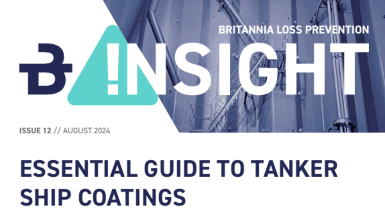
The global energy transition has led to an acceleration of new and innovative technologies designed to support decarbonization efforts across the global supply chain. The maritime industry plays a fundamental part in this effort, not simply by addressing its own impact on global CO2 emissions, but also by facilitating the availability and transportation of new and innovative technologies that are designed to mitigate carbon emissions and managing the growing risk of lithium-ion battery fire. Continue reading “Managing the growing risk of lithium-ion battery fires”










